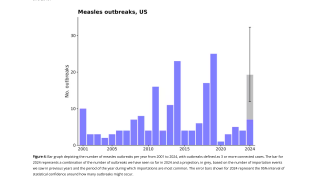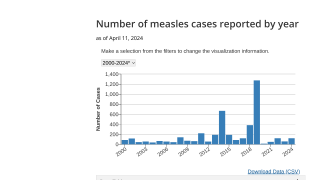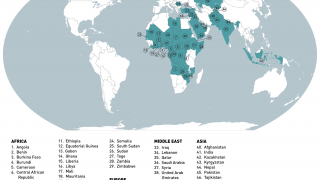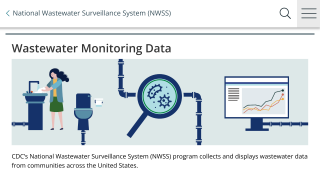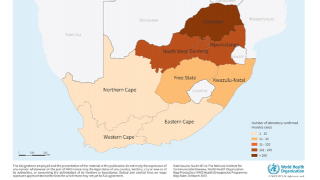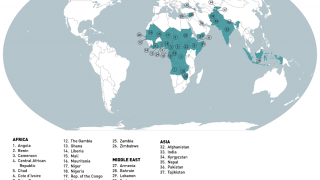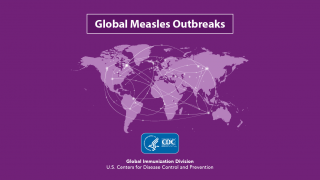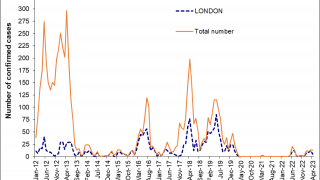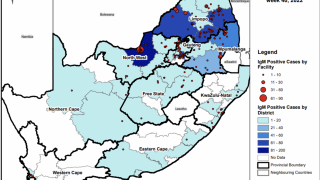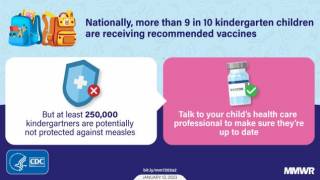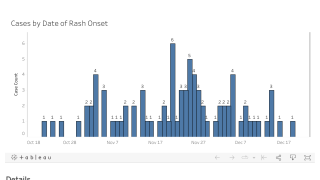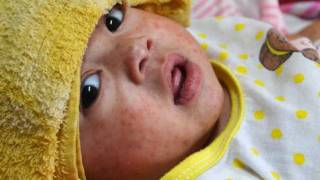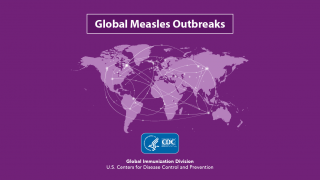USA Keeps Measles Elimination Status, But Travel Alerts Remain

The United States announced it has maintained ‘measles elimination status’, said the Health and Human Services (HHS) in a press release.
Measles elimination status is lost immediately if a chain of transmission in a given outbreak is sustained for more than 12 months.
“We are very pleased measles is still considered eliminated in the United States. This result is a credit to the cooperative work by local and state health departments, community and religious leaders, and other partners,” said HHS Secretary Alex Azar, on October 4, 2019.
“But this past year’s outbreak was an alarming reminder about the dangers of vaccine hesitancy and misinformation.”
“This year marks the greatest number of measles cases in the country since 1992. While cases have been reported in 31 states, 75 percent of measles cases were linked to outbreaks in New York City and New York state, most of which were among unvaccinated children in Orthodox Jewish communities.”
The measles outbreaks may have cost New York about $2.6 million dollars in health-related expenses.
Related measles news
“These outbreaks have been traced to unvaccinated travelers who brought measles back from other countries at the beginning of October 2018.”
“Since measles outbreaks continue to occur in countries around the world, there is always a risk of measles importations into the U.S. When measles is imported into a highly vaccinated community, outbreaks either do not happen or are usually small.”
“However, if measles is introduced into an under-vaccinated community, it can spread quickly and it can be difficult to control.”
"If a measles outbreak is occurring around you it may be beneficial to discuss with your doctor another shot of the MMR II Measles Vaccination due to the low side effect profile it possesses," reminds Saad Sajid, Pharmacy Intern for Brookshire Grocery Company.
Measles is caused by a highly contagious virus, measles is a disease that spreads from person to person by breathing, coughing, or sneezing. People can spread measles up to 4 days before and 4 days after they have a rash.
Measles can lead to serious complications, such as pneumonia, and even death says the HHS.
>> Check your measles immunity <<
Over the last year, the United Kingdom, Greece, Venezuela, and Brazil have lost their measles elimination status.
Data from the World Health Organization (WHO) indicates that during the first 6-months of 2019, there have been more measles cases reported worldwide than in any year since 2006.
As an example, the measles outbreak in the Democratic Republic of the Congo (DRC) has become one of the world’s largest with 179,477 suspected measles cases, including 3,559 related deaths from January to September 1, 2019.
This data reflects a Case-Fatality-Rate (CFR) of 2.0 percent, confirmed by the WHO.
Previously, the WHO reported about 85 percent of the world's children received 1-dose of measles vaccine by their 1st birthday through routine health services, and only 67 percent of children received the 2nd dose of the measles vaccine in 2017.
From January – July 31, 2019, 182 countries reported 364,808 cases of measles to the WHO.
A significant factor contributing to the outbreaks this year has been misinformation in some communities about the safety of the measles-mumps-rubella (MMR) vaccine.
The CDC says the ‘MMR vaccine can be given to children as young as 6 months of age who are at high risk of exposure, such as during international travel or a community outbreak.’
However, measles vaccine doses given before 12 months of age cannot be counted toward the 2-dose series for MMR vaccination.
Related MMR vaccine news
“Our Nation’s successful public health response to this recent measles outbreak is a testament to the commitment and effectiveness of state and local health departments and engaged communities across the country,” said the US Centers for Disease Control and Prevention (CDC) Director Robert R. Redfield, M.D.
“The CDC encourages Americans to embrace vaccination with confidence for themselves and their families. The prevalence of measles is a global challenge, and the best way to stop this and other vaccine-preventable diseases from gaining a foothold in the U.S. is to accept vaccines.”
To notify all international travelers, the CDC issued a worldwide measles virus Travel Alert in June 2019.
This CDC travel alert says ‘before you travel internationally, regardless of where you are going, make sure you are protected fully against measles. If you are not sure, see your healthcare provider at least 1-month before your scheduled departure.’
The CDC says measles can be prevented with 2-doses of the MMR-II vaccine. And, children have the option of getting the Proquad vaccine, which protects against measles, mumps, rubella, and varicella.
These measles vaccines are available at most pharmacies in the USA.
As a general notice, the CDC says ‘any vaccine can cause a side effect, which should be reported to a healthcare provider, or to the CDC.’
Measles news is published by Precision Vaccinations
Our Trust Standards: Medical Advisory Committee




